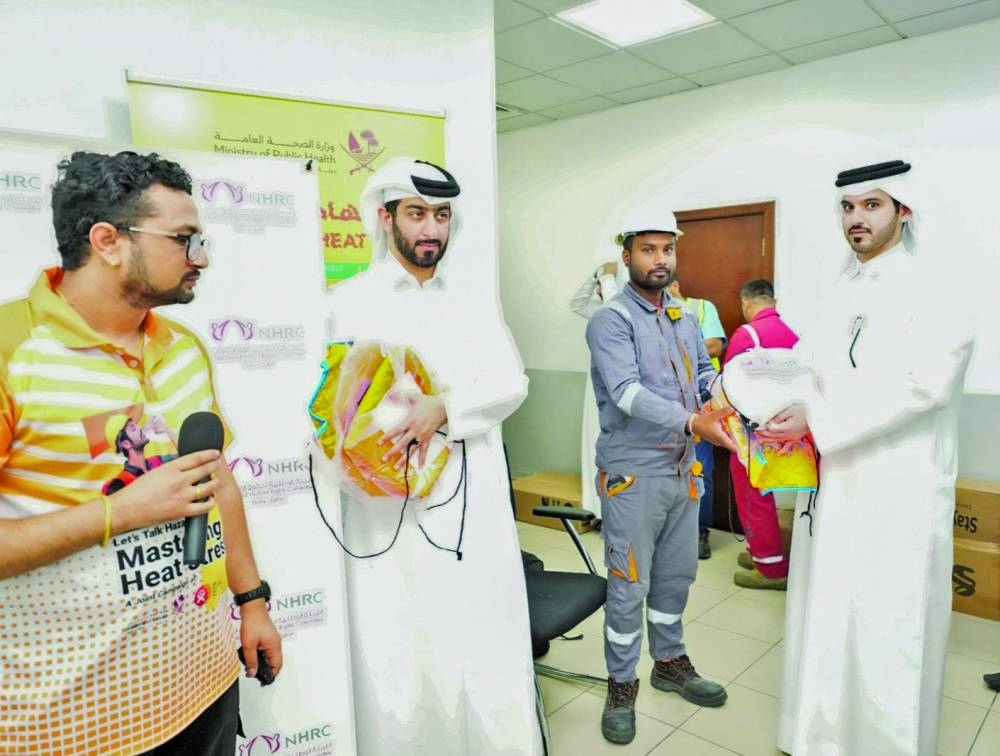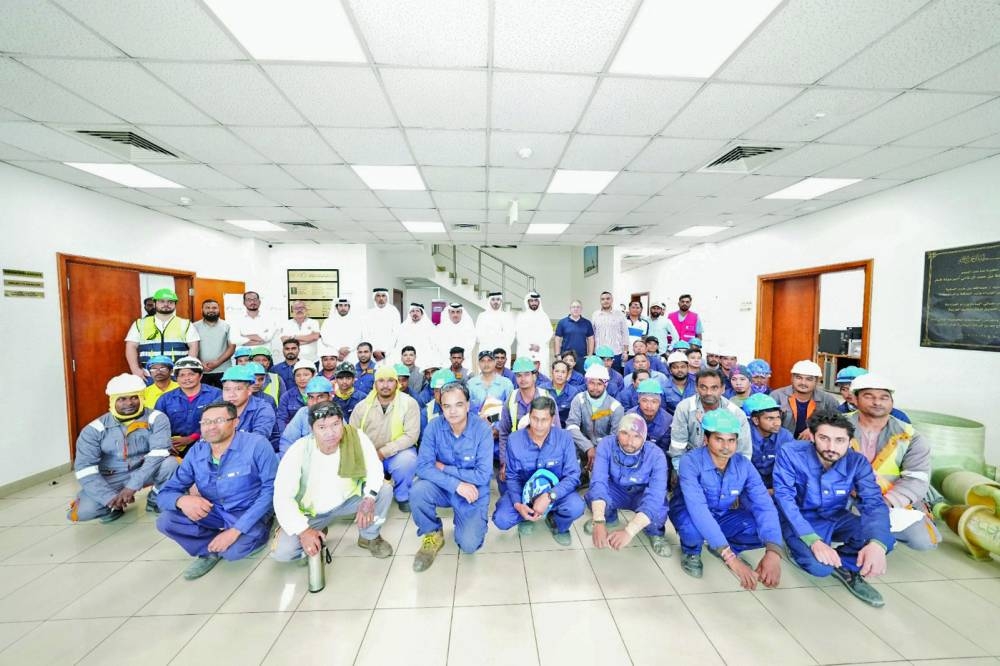The National Human Rights Committee (NHRC), in partnership with the Ministry of Labour, the Primary Health Care Corp, the Red Crescent, the International Labour Organisation, and the World Health Organisation office in Qatar, organised two awareness events as part of the "Healthy Workers for Sustainable Development" campaign. The events are aimed at raising awareness among workers and employers about the right to health and its impact on sustainable development.
The first event featured a diverse program for 80 workers from a security services company. Additionally, the NHRC organised another event in the Small Industries Zone in the Industrial Area for the benefit of 200 workers.
Director of Administrative and Financial Affairs at NHRC, Hamad Majid al-Marzouqi affirmed the committee's continued activities within the "Healthy Workers for Sustainable Development" campaign. He explained that the right to health is connected to providing fair and satisfactory working conditions that ensure employees' safety and health.
He added that the campaign, in collaboration with partners, focused on the right to health in all its aspects, including state obligations and workers' duties to enjoy their health rights, and employers' duties to respect and protect workers' health rights. He pointed out that international and regional human rights charters have affirmed workers' health rights and the right to enjoy a healthy and safe working environment, which contributes to achieving sustainable development goals. He emphasised that neglecting this could lead to severe health consequences that hinder achieving these goals.
Al-Marzouqi highlighted Qatari legislation in this context, stating that laws and decisions related to workers' rights, along with the enhancement of health programmes, ensure all workers' rights to fair and satisfactory working conditions that contribute to sustainable development goals. He noted that a safe and healthy work environment is a key determinant of productivity efficiency, and that workers' enjoyment of health care and services in the workplace enhances their desire to develop their work, improve production quality, and elevate their performance levels.
Khaled Abdul Rahman al-Emadi, an occupational safety and health expert at the Ministry of Labour, explained that the ministry annually organises awareness activities about heat stress. He added that these events aim to raise awareness of the risks of heat stress and ways to prevent it, especially during peak hours from 10am to 3:30pm daily, from July to mid-September each year.
The paper presented by the Ministry of Labour detailed the state's efforts to protect workers from heat stress risks, including legislative amendments requiring companies to develop a joint plan with workers to assess heat stress risks, conduct annual medical examinations to diagnose and assess chronic diseases among workers that may contribute to heat stress risks, grant workers the right to self-regulate their work pace by taking breaks when needed, impose a maximum temperature limit beyond which all work is prohibited, and provide a temperature measurement system.
Director of Health Programmes at the National Mental Health Programme, Ministry of Public Health, Qusai al-Harashah said that mental health is the cornerstone of public health and productivity and is essential for both individuals and organisations.
He affirmed that investing in mental health initiatives not only improves employee well-being but also boosts productivity, reduces absenteeism, and fosters a positive work environment conducive to growth and success.
He emphasised the importance of mental health and early screening to create workplaces where everyone feels valued, supported, and empowered to succeed. Early screening plays a crucial role in identifying mental health concerns before they escalate, allowing for timely intervention and support.
For his part, Head of Health Education at the Medical Affairs Department of the Qatar Red Crescent, Dr Ahmed Deeb Idlebi, delivered a practical lecture on heat exhaustion and heatstroke, and related illnesses such as brown fatigue. He also provided methods for preventing heat stress through appropriate clothing and personal tools, along with personal factors like drinking plenty of water to retain the body's mineral salts and maintaining a healthy diet.



